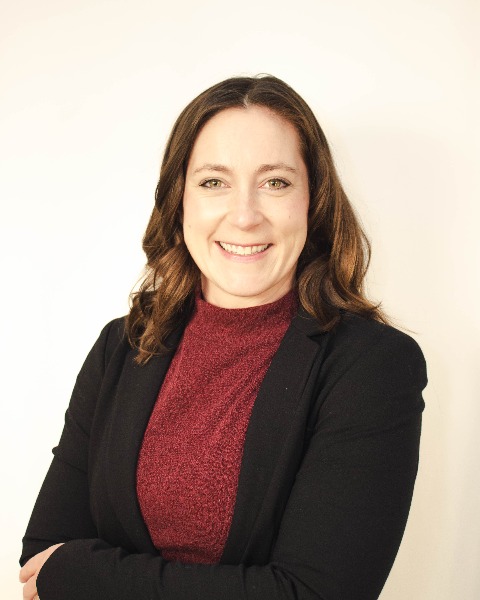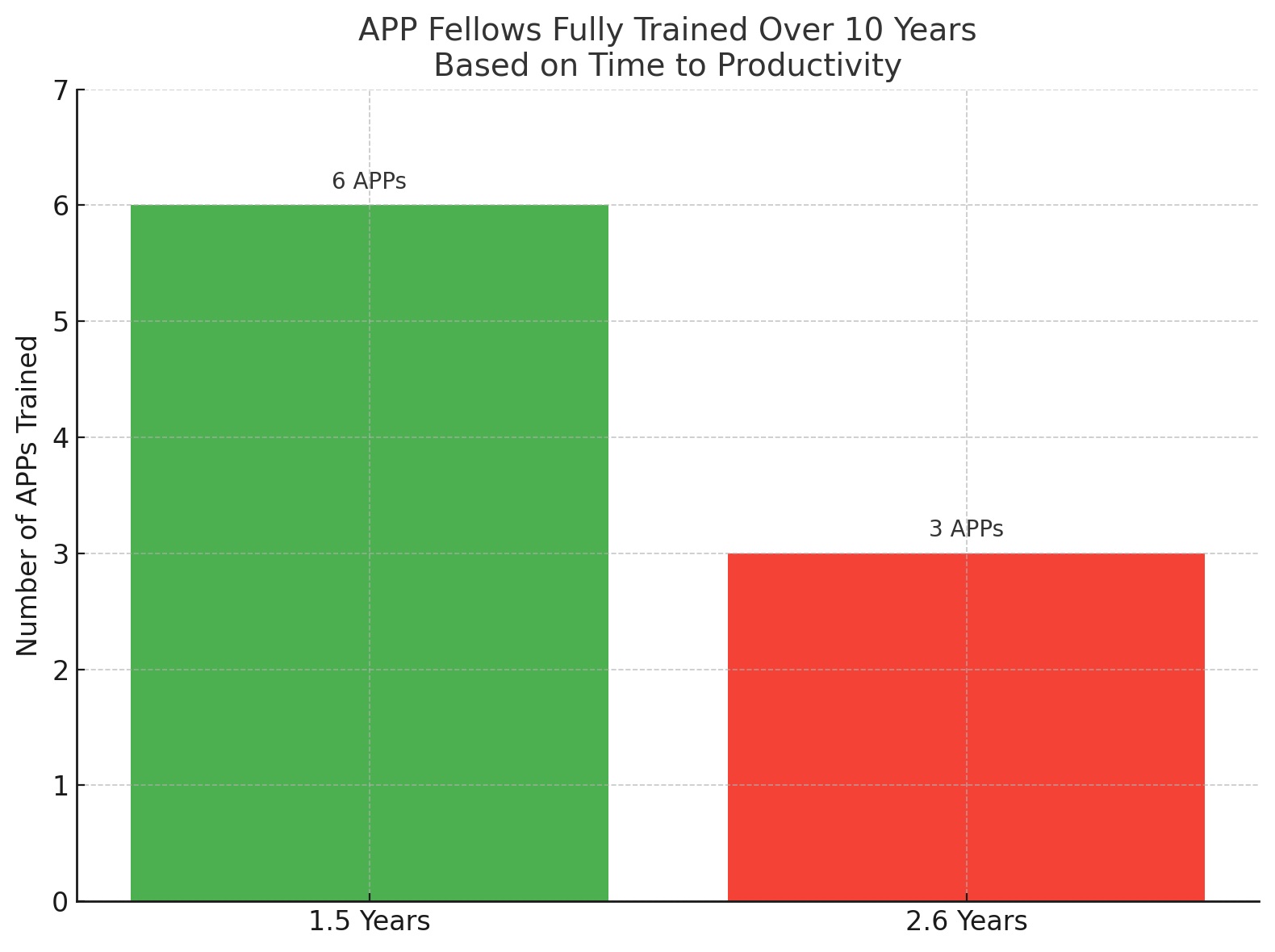Sunday Poster Session
Category: Practice Management
P1927 - Closing the Gap: Training Advanced Practice Providers With Postgraduate Fellowships to Address the Growing Need of Gastroenterology Providers
Sunday, October 26, 2025
3:30 PM - 7:00 PM PDT
Location: Exhibit Hall

Catherine Brady, PA-C (she/her/hers)
University of Colorado Anschutz Medical Campus
Aurora, CO
Presenting Author(s)
Catherine Brady, PA-C
University of Colorado Anschutz Medical Campus, Aurora, CO
Introduction: The demand for gastroenterology (GI) services continues to outpace the supply of trained specialists, creating care disparities across the United States. According to the Healthcare Resource and Services Administration (HRSA), a projected shortage of 1,630 gastroenterologists will emerge by 2025. By 2030, adults aged 65 and older will comprise over 20% of the U.S. population, further driving the need for GI services including cancer screenings, liver disease management, and endoscopic procedures. Advanced Practice Provider (APP) fellowship programs in GI represent a strategic workforce solution, aimed at accelerating APP readiness to deliver high-quality autonomous care in this field.
Methods: We implemented a structured, blended learning APP fellowship at a large academic institution, integrating didactic instruction, hands-on clinical experience, and competency-based assessments. The curriculum was designed to promote proficiency in core GI domains, including acute care, chronic disease management, and procedural knowledge. Evaluation metrics included clinical productivity benchmarks, patient satisfaction scores, and qualitative and quantitative assessments of fellow performance.
Results: The inaugural APP fellow achieved 100% clinical productivity by the end of the fellowship year—a milestone typically reached by APPs after two years. Additionally, the first fellow was hired as a full-time faculty member and achieved a positive return on investment before the second year—significantly ahead of the national average of 2.6 years. Patient satisfaction metrics and narrative comments indicated high-quality care and positive experiences. Competency evaluations confirmed mastery in diagnostic reasoning and therapeutic management. Faculty noted increased efficiency and improved patient access in the outpatient setting.
Discussion: This fellowship demonstrates that a structured training model can accelerate the trajectory of APPs toward independent GI practice.Fellowship-trained APPs enhance care delivery and expand access in a growing specialty. Reducing the time to APP fellow productivity from the national average of 2.6 years to 1.5 years allows for the training of up to six fellows over a 10-year period, compared to only three. This acceleration not only doubles workforce output but also significantly increases return on investment and expands access to GI care. Continued investment in APP training infrastructure may be essential to building a sustainable GI workforce.

Figure: This chart compares the number of APP fellows fully trained over 10 years, based on different productivity timelines. It visually highlights that reducing the time to productivity from 2.6 to 1.5 years doubles the number of fellows trained.

Figure: This chart reflects patient comments and satisfaction provided after a visit with a fellowship trained APP.
Disclosures:
Catherine Brady indicated no relevant financial relationships.
Catherine Brady, PA-C. P1927 - Closing the Gap: Training Advanced Practice Providers With Postgraduate Fellowships to Address the Growing Need of Gastroenterology Providers, ACG 2025 Annual Scientific Meeting Abstracts. Phoenix, AZ: American College of Gastroenterology.
University of Colorado Anschutz Medical Campus, Aurora, CO
Introduction: The demand for gastroenterology (GI) services continues to outpace the supply of trained specialists, creating care disparities across the United States. According to the Healthcare Resource and Services Administration (HRSA), a projected shortage of 1,630 gastroenterologists will emerge by 2025. By 2030, adults aged 65 and older will comprise over 20% of the U.S. population, further driving the need for GI services including cancer screenings, liver disease management, and endoscopic procedures. Advanced Practice Provider (APP) fellowship programs in GI represent a strategic workforce solution, aimed at accelerating APP readiness to deliver high-quality autonomous care in this field.
Methods: We implemented a structured, blended learning APP fellowship at a large academic institution, integrating didactic instruction, hands-on clinical experience, and competency-based assessments. The curriculum was designed to promote proficiency in core GI domains, including acute care, chronic disease management, and procedural knowledge. Evaluation metrics included clinical productivity benchmarks, patient satisfaction scores, and qualitative and quantitative assessments of fellow performance.
Results: The inaugural APP fellow achieved 100% clinical productivity by the end of the fellowship year—a milestone typically reached by APPs after two years. Additionally, the first fellow was hired as a full-time faculty member and achieved a positive return on investment before the second year—significantly ahead of the national average of 2.6 years. Patient satisfaction metrics and narrative comments indicated high-quality care and positive experiences. Competency evaluations confirmed mastery in diagnostic reasoning and therapeutic management. Faculty noted increased efficiency and improved patient access in the outpatient setting.
Discussion: This fellowship demonstrates that a structured training model can accelerate the trajectory of APPs toward independent GI practice.Fellowship-trained APPs enhance care delivery and expand access in a growing specialty. Reducing the time to APP fellow productivity from the national average of 2.6 years to 1.5 years allows for the training of up to six fellows over a 10-year period, compared to only three. This acceleration not only doubles workforce output but also significantly increases return on investment and expands access to GI care. Continued investment in APP training infrastructure may be essential to building a sustainable GI workforce.

Figure: This chart compares the number of APP fellows fully trained over 10 years, based on different productivity timelines. It visually highlights that reducing the time to productivity from 2.6 to 1.5 years doubles the number of fellows trained.

Figure: This chart reflects patient comments and satisfaction provided after a visit with a fellowship trained APP.
Disclosures:
Catherine Brady indicated no relevant financial relationships.
Catherine Brady, PA-C. P1927 - Closing the Gap: Training Advanced Practice Providers With Postgraduate Fellowships to Address the Growing Need of Gastroenterology Providers, ACG 2025 Annual Scientific Meeting Abstracts. Phoenix, AZ: American College of Gastroenterology.
